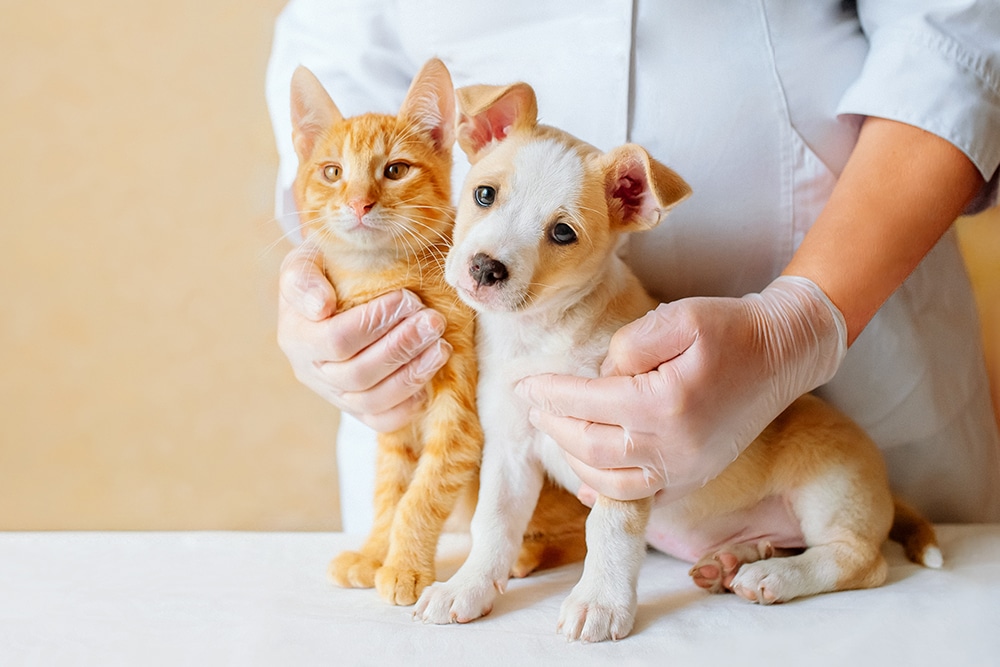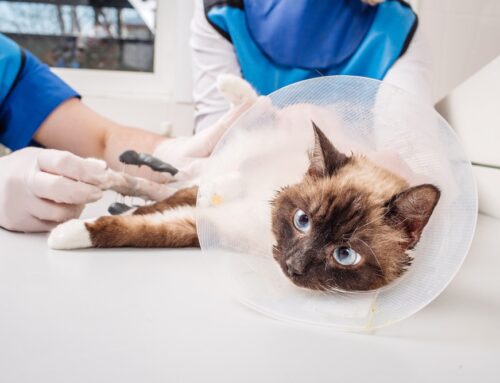Emergency or Overreaction? How to Tell With Puppies and Kittens
Bringing home a new puppy or kitten is an experience filled with curiosity, surprises, and more than a few moments of uncertainty. Young pets explore their new world with endless energy and almost no caution, which means even the smallest hazard can lead to a health scare. Knowing when to relax and when to reach out for veterinary care helps protect a new pet’s health and eases the stress of pet ownership.
At Spring Branch Veterinary Hospital, we know emergencies don’t wait for convenience. That’s why we provide urgent care during regular hospital hours and make education a key part of helping pet owners recognize early warning signs.
Why Puppies and Kittens Need Extra Vigilance
Puppies and kittens are not just smaller versions of adult pets; their immune systems are still developing, and they lack the life experience to avoid danger. Even small accidents or mild symptoms can escalate quickly. Understanding what to watch for helps owners make timely decisions that protect their pets.
Is It an Emergency or Not?
Deciding what counts as an emergency can feel overwhelming. It helps to remember that certain symptoms almost always require immediate attention.
Always call for veterinary advice if a puppy or kitten shows:
- Difficulty breathing or constant coughing
- Repeated vomiting or diarrhea lasting more than a few hours
- Seizures or sudden collapse
- Obvious trauma, such as limping or bleeding
- Ingestion of toxic substances or foreign objects
When in doubt, reaching out is better than waiting. Emergencies often develop faster than expected in young pets. Learn more about preventing pet emergencies to reduce risks at home.
Breathing Problems: Every Second Matters
Breathing troubles can appear suddenly. Small airways, infections, or inhaled objects can lead to complications fast.
Watch for signs such as:
- Rapid, shallow, or labored breathing
- Open-mouth breathing in kittens
- Wheezing or choking sounds
- Gums turning pale or bluish
Any breathing difficulty warrants an immediate ER trip.
Trauma: Hidden Dangers After Rough Play
Energetic play sometimes results in more than a tumble. Falls from furniture, roughhousing with larger pets, or escaping through an open door can cause injuries that aren’t obvious at first.
Possible signs of trauma include:
- Reluctance to move or stand
- Whimpering or hiding
- Swelling or visible wounds
- Pale gums or sudden weakness
X-rays and other diagnostic services may be needed to check for fractures or internal injuries. Early treatment prevents complications and speeds recovery.
Poisoning: Curiosity Can Be Dangerous
Kittens and puppies investigate with their mouths, and many everyday items can be toxic. The ASPCA Poison Control provides an extensive list of hazards.
Common toxic items include:
- Chocolate, grapes, onions, and garlic
- Rodent poisons and insecticides
- Over-the-counter or prescription human medications
- Toxic plants, like lilies and sago palms
Warning signs: vomiting, drooling, tremors, confusion, or collapse. Bring packaging or plant samples with you to the clinic- it helps our team act fast.
Vomiting and Diarrhea: When Tummy Troubles Turn Serious
Mild stomach upset is common when pets adjust to food or stress. But persistent vomiting or diarrhea can quickly cause dehydration, especially in small animals.
Red flags:
- Symptoms lasting more than 12 hours
- Blood in vomit or stool
- Refusal to eat or drink
- Sunken eyes, dry gums, or sluggish behavior
In puppies, parvovirus and parasites are common culprits. Kittens also experience parasite overload and can easily get diarrhea from food changes. Prompt treatment makes all the difference.
Seizures: Know How to Respond
Seizures are frightening but not uncommon in young pets with low blood sugar, toxin exposure, or congenital conditions.
What to do during a seizure:
- Move hazards out of the way
- Do not restrain or put anything in their mouth
- Time the episode if possible
- Call your vet once it ends
Learn more about causes and care with Cornell’s guide to seizures.

Other Emergencies to Watch For
- Chewing hazards: Electric cords can shock or burn; unsafe chews can splinter. Provide only vet-approved toys.
- “Garbage gut”: Pets that raid trash may ingest spoiled food, bones, or toxins, leading to vomiting or worse. Secure bins tightly.
- Parasites: Worms, fleas, or ticks can overwhelm a young immune system, causing anemia or GI upset. Routine prevention is vital.
- Foreign objects: Strings, socks, or toy parts can cause intestinal blockages. Watch for vomiting, straining, or abdominal pain.
Staying Ready: How to Prepare for Emergencies
Preparation keeps panic at bay. A basic kit and a little training go a long way.
Build a Pet First-Aid Kit:
- Gauze pads and bandages
- Digital thermometer
- Tweezers and saline rinse
- Bulb syringe for airway clearing
- Emergency numbers, including ASPCA Poison Control
The Red Cross first aid course for pets is another excellent resource.
Pet-Proofing: Prevention Is Powerful
A little prevention saves a lot of worry. Learn more with essential tips for pet-proofing your home.
| Common Household Risks | Simple Solutions |
| Cleaning products under sinks | Install childproof locks |
| Loose cords or small toys | Keep off floors and out of reach |
| Toxic plants | Remove or place on high shelves |
| Medications | Store in closed cabinets |
Bringing the Right Information to the Vet
The more details you bring, the faster care can begin:
- Packaging if toxins were ingested
- Notes on when symptoms began
- Photos or videos of concerning behavior
- Vaccination and diet history
For more at-home monitoring, see the Humane Society’s home exam checklist.
Frequently Asked Questions
How can I afford unexpected emergencies?
Planning ahead with pet insurance helps cover sudden expenses and avoids tough financial decisions.
Should I call or go straight to the vet if I’m unsure?
Always call. Our team can help you decide if an urgent visit is needed.
Do some breeds have higher emergency risks?
Yes. Learn more about breed-specific health risks to stay proactive.
Your Partner in Pet Health
Raising a new puppy or kitten comes with joy, surprises, and the occasional scare. Knowing what to watch for and when to call keeps your pet safe and your mind at ease.
At Spring Branch Veterinary Hospital, our team provides emergency care during open hours, along with guidance and support whenever questions arise. Don’t wait if you’re worried! Contact us to ask questions or schedule an urgent exam. A safe start today sets the foundation for a healthy future.









Leave A Comment